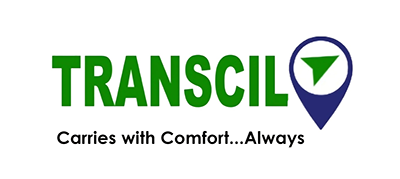Fleet service management is essential for businesses that rely on transportation for their operations. Whether managing a logistics company, a delivery service, or a corporate vehicle fleet, effective fleet management ensures efficiency, cost-effectiveness, and safety.
This guide will provide an in-depth look at fleet service management, covering its basics, best practices, and strategies to optimize performance. Whether you’re new to the industry or looking to enhance your fleet operations, this blog will equip you with valuable insights.
What is Fleet Service Management?
Fleet service management involves the strategic oversight of a company’s vehicles to ensure efficient, cost-effective, and safe operations. It includes monitoring vehicle performance, scheduling maintenance, tracking fuel consumption, analyzing driver behavior, and ensuring compliance with regulatory standards.
Effective fleet service management helps businesses improve operational efficiency, reduce downtime, enhance driver safety, and lower overall transportation costs. Whether managing a small fleet of delivery vans or a large fleet of commercial trucks, organizations rely on technology-driven solutions to streamline their operations.
Key Components of Fleet Service Management
1. Vehicle Tracking Solutions
GPS tracking systems provide real-time location data, allowing fleet managers to monitor vehicle movements, optimize routes, and improve delivery timelines. These solutions enhance security, reduce unauthorized vehicle use, and increase operational transparency.
2. Fleet Maintenance Best Practices
Regular servicing and preventive maintenance help prevent costly breakdowns and extend vehicle lifespan. Scheduled oil changes, brake inspections, tire rotations, and engine diagnostics ensure vehicles remain roadworthy and efficient.
3. Fuel Management Strategies
Fuel costs make up a significant portion of fleet expenses. Implementing fuel management strategies – such as monitoring fuel consumption, optimizing routes, and reducing idling – can lead to substantial savings. Fuel cards and telematics data also help track and control fuel usage.
4. Driver Performance Monitoring
Analyzing driver behavior helps improve safety and efficiency. Fleet managers use telematics to track metrics like speeding, harsh braking, and excessive idling. Driver coaching programs can help reduce risks, prevent accidents, and improve overall fleet performance.
5. Fleet Optimization Techniques
Using AI-driven fleet management software allows companies to allocate resources efficiently, minimize downtime, and improve scheduling. Route optimization tools help reduce fuel consumption and enhance delivery times.
6. Sustainable Fleet Solutions
Adopting eco-friendly practices, such as using electric or hybrid vehicles, promoting fuel-efficient driving, and reducing emissions, helps businesses minimize their carbon footprint. Sustainability efforts also align with corporate social responsibility (CSR) initiatives.
7. Telematics in Fleet Management
Telematics combines GPS, onboard diagnostics, and real-time analytics to monitor vehicle performance and driver behavior. This data-driven approach enhances efficiency, reduces maintenance costs, and improves decision-making.
8. Compliance and Safety Regulations
Ensuring that fleet operations comply with industry standards, government regulations, and environmental policies is crucial. Compliance with safety inspections, emissions testing, and driver certification requirements reduces legal risks and enhances fleet reliability.

Why Fleet Service Management is Essential
Fleet service management is more than just vehicle tracking – it’s a strategic approach to improving fleet efficiency, reducing costs, and enhancing safety. Companies that invest in modern fleet management solutions can experience:
✔ Reduced operational expenses through optimized fuel use and maintenance.
✔ Improved safety by monitoring driver behavior and ensuring regulatory compliance.
✔ Enhanced productivity with real-time tracking and automated reporting.
✔ Sustainability benefits by adopting eco-friendly vehicle solutions.
Vehicle Tracking Solutions: Enhancing Fleet Efficiency
One of the most critical aspects of fleet service management is vehicle tracking solutions. GPS tracking for fleets allows businesses to:
- Monitor vehicle location in real-time.
- Optimize routes for fuel efficiency.
- Improve delivery times and service reliability.
- Reduce unauthorized vehicle usage.
Companies using GPS tracking have reported a 15-20% improvement in fleet efficiency.
Fleet Maintenance Best Practices: Ensuring Longevity & Performance
Proper fleet maintenance is crucial for maximizing vehicle lifespan, reducing downtime, and ensuring cost efficiency. A well-maintained fleet not only enhances safety but also improves fuel efficiency and operational performance. Below are some best practices to keep your fleet in top condition:
1. Implement Preventive Maintenance
Waiting for a vehicle to break down before servicing it can lead to expensive repairs and unexpected downtime. Preventive maintenance involves scheduling routine inspections, oil changes, brake checks, and other essential servicing before issues arise. Regular maintenance reduces the risk of sudden failures, enhances safety, and extends vehicle longevity.
2. Use Fleet Management Software
Manually tracking maintenance schedules for multiple vehicles can be overwhelming. Fleet management software automates maintenance reminders, logs service history, and provides real-time insights into vehicle health. It enables fleet managers to stay proactive, preventing minor issues from escalating into major breakdowns.
3. Monitor Tire and Engine Health
Tires and engines are among the most critical components of any vehicle. Poor tire maintenance leads to uneven wear, reduced fuel efficiency, and potential blowouts. Regularly checking tire pressure, alignment, and tread depth can prevent premature replacements and improve safety. Similarly, monitoring engine performance – such as oil levels, coolant, and exhaust emissions – helps identify early warning signs of mechanical issues, reducing costly repairs.
4. Train Drivers on Vehicle Care
Drivers play a crucial role in fleet maintenance. Providing training on responsible driving habits, such as avoiding harsh braking, rapid acceleration, and overloading, can reduce wear and tear on vehicles. Educating drivers on daily vehicle inspections – like checking fluid levels, tire pressure, and dashboard warning lights – helps catch minor issues before they become major problems. Encouraging drivers to report any abnormalities promptly ensures that maintenance teams can address issues swiftly, preventing costly repairs.
By following these best practices, businesses can improve fleet reliability, enhance safety, and optimize operational costs. Regular maintenance is not just an expense but an investment in long-term efficiency and performance.
Cost-Effective Fleet Operations: Reducing Expenses Smartly
A well-managed fleet can significantly cut down costs. Here are some ways to ensure cost-effective fleet operations:
- Fuel Management Strategies – Reduce fuel costs by implementing route optimization and fuel card programs.
- Telematics in Fleet Management – Analyze data to minimize idle time and fuel wastage.
- Optimize Vehicle Utilization – Assign vehicles based on workload demands.
- Negotiate Insurance Costs – Use safety data to secure lower premiums.
Driver Performance Monitoring: Enhancing Safety & Efficiency
Monitoring driver performance plays a crucial role in fleet optimization techniques. Benefits include:
- Reduced Accidents – Identifying risky behaviors like harsh braking and overspeeding.
- Improved Fuel Efficiency – Encouraging eco-friendly driving habits.
- Higher Productivity – Reducing idle time and improving trip efficiency.
- Telematics in fleet management helps track driver behavior and provide actionable insights for improvement.
Sustainable Fleet Solutions: Driving a Greener Future
With environmental concerns rising, businesses are looking for sustainable fleet solutions. Steps include:
- Adopting Electric Vehicles (EVs) – Reduces emissions and long-term fuel costs.
- Eco-Driving Training – Encourages fuel-efficient driving.
- Route Optimization – Minimizes unnecessary fuel consumption.
By implementing sustainability measures, companies can reduce their carbon footprint by up to 30%.
Compliance and Safety Regulations: Staying Legally Compliant
Compliance with fleet service management regulations ensures safety and legal adherence. Key areas include:
- Driver Licensing and Training – Ensure all drivers are certified and trained.
- Vehicle Safety Inspections – Regular checks to meet government regulations.
- Data Security in Telematics – Protect driver and fleet information from cyber threats.
Failure to comply can result in heavy fines, lawsuits, or operational disruptions.

Conclusion: Partner with Transcil Sustainable Services Pvt Ltd
Effective fleet service management is essential for optimizing performance, reducing costs, and ensuring compliance. Businesses that invest in vehicle tracking solutions, fleet maintenance best practices, cost-effective fleet operations, and sustainable fleet solutions can gain a competitive edge while maintaining operational efficiency.
Transcil Sustainable Services Pvt Ltd is a trusted partner in fleet management, offering advanced solutions tailored to your business needs. Our services include:
- Real-Time Vehicle Tracking – Advanced GPS tracking for fleets to enhance efficiency.
- Proactive Fleet Maintenance – Ensuring your vehicles stay in top condition with predictive servicing.
- Cost-Effective Fleet Operations – Lower fuel costs and maintenance expenses through data-driven strategies.
- Driver Performance Monitoring – Improve safety and compliance with real-time telematics insights.
- Sustainable Fleet Solutions – Transitioning towards eco-friendly and fuel-efficient fleet operations.
With years of experience and cutting-edge technology, Transcil ensures that your fleet remains compliant, cost-efficient, and performance-driven. Let us help you achieve smoother, more profitable fleet operations.
🔗 Visit: Best Fleet Management Services |Sustainable Fleet Solutions|Transcil
📞 Contact Us Today!
Frequently Asked Questions (FAQs)
Q. What is fleet service management?
A. Fleet service management involves overseeing and maintaining a group of vehicles to enhance efficiency, safety, and cost-effectiveness.
Q. How can GPS tracking help fleet management?
A. GPS tracking for fleets provides real-time vehicle location, reduces fuel costs, and improves operational efficiency.
Q. What are the benefits of using telematics in fleet management?
A. Telematics helps monitor driver behavior, optimize routes, reduce fuel wastage, and enhance overall fleet performance.
Q. How can businesses make fleet operations more sustainable?
A. By adopting sustainable fleet solutions like electric vehicles, eco-driving training, and route optimization, businesses can reduce emissions and costs.
Q. Why should businesses choose Transcil Sustainable Services Pvt Ltd for fleet management?
A. Transcil offers comprehensive fleet service management solutions, including vehicle tracking, driver monitoring, and cost-effective operations to enhance business efficiency.

